MastersinCommunications.com was established in 2017 as the only comprehensive directory of non-profit, accredited master’s in communication programs available on the Internet. We are a uniquely thorough resource that is committed to giving students the most direct and relevant insight into master’s in communication programs in the United States. To that end, we have interviewed over 150 program directors and professors from colleges and universities that offer graduate communication programs, in areas ranging from marketing and public relations to organizational communication, health communication, and political and global communication.
Over time, program directors and the curricula for master’s in communication programs change, as professors take different administrative positions and course content is updated to reflect the latest developments in the field. To give students the most current information on a given program, MastersinCommunications.com conducts interviews with new program directors regarding program changes. Nevertheless, we also see the value of keeping our older interviews for informational purposes. The following interviews have been archived for historical purposes, as the programs are either no longer offered or we have since published an updated interview with more current information.
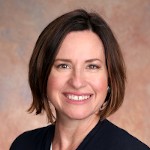
Interview with Kristen M. Berkos, Ph.D. – Bryant University
Dr. Berkos is an Associate Professor and was the Director of Graduate Studies in Communication at Bryant University, where she oversaw student recruitment, admissions, and advising, curriculum development, and faculty hiring for the MA in Communication program. At this time, Bryant University is not accepting applications for this program, so Dr. Berkos interview has been archived.

Interview with Joe Burns, Ph.D. – Southeastern Louisiana University
Dr. Burns is the Graduate Coordinator of the Master's in Organizational Communication program at Southeastern Louisiana University, where he advises students, supports faculty, and oversees curriculum development. He also teaches courses in communication technology as a Professor. "We prepare people for advanced careers. We are real-world based. We are a working degree for working people who want to be the best they can for an employer."

Interview with Federica Fornaciari, Ph.D. – National University
Dr. Fornaciari is the Academic Program Director for National University's Master of Arts in Strategic Communications. As Director, she advises students, manages curriculum updates, and teaches classes in media strategies, interpersonal communication, global communication, and interactive storytelling. "The Master of Arts in Strategic Communications is an exciting program that integrates theoretical and hands-on applications of relevant communication theories, providing students with the toolkits necessary to become communication specialists in a complex media environment."
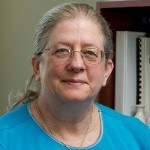
Interview with Marjorie Rush Hovde, Ph.D. – Indiana University-Purdue University Indianapolis
Dr. Hovde is the Chair of Technology Leadership and Communication Graduate Programs at Indiana University - Purdue University Indianapolis, where she oversees the MS program, advises students, supports faculty, and teaches classes in popular culture, document management, and visual communication. "Our student-centered department seeks to help every student succeed. Our courses are challenging, but we also try to work with students to achieve their academic and professional goals. Because we have a limited number of students, we are able to provide individual support as student select courses consistent with their career goals."
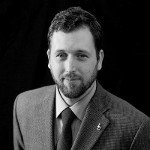
Interview with James Hutson, Ph.D. – Lindenwood University
Dr. Hutson is the Assistant Dean of Graduate and Online Programs for Lindenwood University's School of Arts, Media, and Communications, where he oversees curriculum development, recruitment, and admissions, and teaches courses in research methods and numerous graduate seminars. "We pride ourselves in structuring much of our program around professional practices, and instruction from individuals actually working in their chosen fields. In order to maintain the latest equipment and pedagogical strategies in the field, the faculty in the Communications Department are active in associations such as the Broadcast Education Association (BEA) and attend both academic conferences, as well as trade shows."
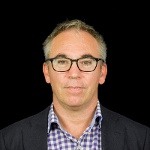
Interview with Andrew Klobucar, Ph.D. – New Jersey Institute of Technology
Dr. Klobucar is the Director of the Master of Science in Professional and Technical Communication at the New Jersey Institute of Technology, where he advises each student in the program, oversees curriculum developments and updates, and supports graduate faculty instructors. "We’d like our program to provide first and foremost an extended opportunity for potential learners to design and build their own independent projects in a related field of their choosing in order to have ready a competitive portfolio when applying for full-time positions."

Interview with David Lightfoot, Ph.D. – Georgetown University
Dr. Lightfoot is the Director of Georgetown University's Master of Arts in Communication, Culture, and Technology program. As Director, he manages curriculum development, recruits and advises students, and teaches courses on the intersection of linguistics and cognitive science. He also co-directs Georgetown University's Interdisciplinary Ph.D. in Cognitive Science. "At CCT, we don’t teach operational skills just for today’s careers. Ours is a thinking-skills program where students develop practical approaches to making sense of the new and unexplored - these they can apply to a wide variety of careers, even those that haven’t materialized yet."
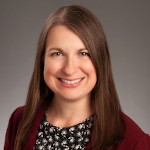
Interview with Jennifer Mallette, Ph.D. – Boise State University
Dr. Mallette is the Director of the Master of Arts in Technical Communication at Boise State University, where she oversees student advising and course development, while teaching classes as an Associate Professor. "I think mentoring is really what makes our program work so well, because students feel like they can really develop and maintain relationships with our faculty members, and these connections last far beyond the program."
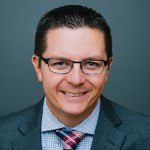
Interview with Curtis Newbold, Ph.D. – Westminster College
Dr. Newbold is an Associate Professor and the Co-Director of the Master of Strategic Communication program at Westminster College, where he leads the students' international trip and social service projects, oversees the development of the curriculum, advises students, and teaches courses in brand strategy, web design, popular media, and business and technical writing. "Our Online-Plus model is designed to work with learners of today—people who work full-time but who want to advance their careers, who have busy personal and professional lives but are seeking graduate education to boost their knowledge, skills, and promotional opportunities."

Interview with Magdelana Red, Ph.D. – University of Denver
Dr. Red is the Academic Director for the Master of Arts in Communication Management program at the University of Denver's University College, where she also teaches courses in interpersonal, organizational, and mass communication as an Assistant Professor. "This applied program is ideal for current communication professionals who need to build more specialized skills or career changers who want to pursue communication roles."

Interview with Clarke Rountree, Ph.D. – The University of Alabama in Huntsville
Dr. Rountree is the Graduate Director of the Masters in Professional Communication program at The University of Alabama in Huntsville, where he also teaches courses in rhetorical theory, rhetorical criticism, and legal argument as a Professor of Communication Arts. "We are a small, close-knit department that fosters good faculty-student relationships. And all graduate faculty are talented teachers who earn very high marks from students, even though they approach teaching in ways that match their particular subject matter and personalities."

Interview with Corinne Stavish, M.A. – Lawrence Technological University
Professor Stavish was the Director of Lawrence Technological University's Master of Science in Technical and Professional Communication program, where she guided curriculum development, supported faculty, advised students, and taught courses in team building, corporate storytelling, and interpersonal communication. At this time, Lawrence Technological University is not offering the Master of Science in Technical and Professional Communication program.
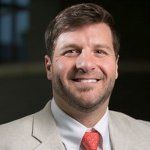
Interview with Michael G. Strawser, Ph.D. – Bellarmine University
Dr. Strawser was the Director of Graduate Programs at Bellarmine University's School of Communication, where he taught courses in organizational, instructional, strategic, intercultural, and leadership communication as an Assistant Professor. Dr. Strawser also served as an Instructional Designer for Bellarmine University's online and hybrid courses. This interview was published in February of 2018 and archived in June of 2021 when we conducted a new interview about the M.A. in Communication in Bellarmine University.
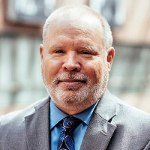
Interview with Michael Weigold, Ph.D. – University of Florida
Dr. Weigold is the Associate Dean for Undergraduate Affairs and Enrollment Management for the College of Journalism and Communications at the University of Florida, where he advises students of the College and supervised the design and development of the online Master of Arts in Mass Communication program. As a Professor, he also teaches classes in advertising, strategic communication, and health and science communication. "The students who benefit the most from our program have a very clear sense of professional life, and want a partner that will support them in both the short-term and the long-term as they earn their degree."
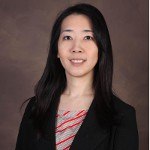
Interview with Hsin-I Sydney Yueh, Ph.D. – Northeastern State University
Dr. Yueh is the Director of the Master of Arts in Communication program at Northeastern State University, where she oversees recruitment and admissions, and advises students throughout their enrollment. She also teaches courses in intercultural communication and minority studies. "The biggest selling point for our program is its flexibility. Although the program is not completely online, students do have options to take online courses, hybrid courses, and distant learning courses to make their course schedule more flexible."
